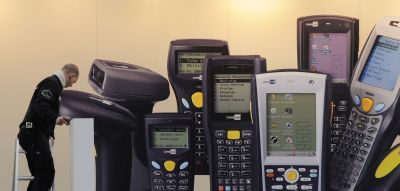One in four Germans wants microchip under skin: poll

Your support helps us to tell the story
From reproductive rights to climate change to Big Tech, The Independent is on the ground when the story is developing. Whether it's investigating the financials of Elon Musk's pro-Trump PAC or producing our latest documentary, 'The A Word', which shines a light on the American women fighting for reproductive rights, we know how important it is to parse out the facts from the messaging.
At such a critical moment in US history, we need reporters on the ground. Your donation allows us to keep sending journalists to speak to both sides of the story.
The Independent is trusted by Americans across the entire political spectrum. And unlike many other quality news outlets, we choose not to lock Americans out of our reporting and analysis with paywalls. We believe quality journalism should be available to everyone, paid for by those who can afford it.
Your support makes all the difference.It sounds like something from a sci-fi film, but one in four Germans would be happy to have a microchip implanted in their body if they derived concrete benefits from it, a poll Monday showed.
The survey, by German IT industry lobby group BITKOM, was intended to show how the division between real life and the virtual world is increasingly coming down, one of the main themes of the CeBIT trade fair that kicks off Tuesday.
In all, 23 percent of around 1,000 respondents in the survey said they would be prepared to have a chip inserted under their skin "for certain benefits".
Around one in six (16 percent) said they would wear an implant to allow emergency services to rescue them more quickly in the event of a fire or accident.
And five percent of people said they would be prepared to have an implant to make their shopping go more smoothly.
But 72 percent said they would not "under any circumstances" allow electronics in their body.
The results appeared to surprise even the high-tech sector.
"This is of course an extreme example of how far people can imagine networks going," said BITKOM chief August-Wilhelm Scheer.
The CeBIT, the world's biggest high-tech fair, throws its doors open to the public on Tuesday, with Spain, the current EU president, this year's guest of honour.
German Chancellor Angela Merkel and Spanish Prime Minister Jose Luis Rodriguez Zapatero were due to speak later Monday in an official opening ceremony before touring the exhibition early Tuesday.
A total of 4,157 firms from 68 countries are to unveil their latest gadgets, a decline of three percent on last year as many high-tech firms stay away amid strong competition from other events.
Join our commenting forum
Join thought-provoking conversations, follow other Independent readers and see their replies
Comments